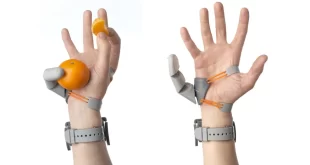The University of British Columbia
The Department of Earth, Ocean, and Atmospheric Sciences (EOAS; www.eoas.ubc.ca) in the Faculty of Science at the University of British Columbia (UBC) seeks a global research leader in isotope geochemistry and geochronology for a Tier 1 Canada Research Chair (CRC).
Reporting to the Head of EOAS, the successful candidate will hold a PhD in geosciences or a related discipline. They will be an established researcher and have received wide recognition for their sustained accomplishments in high-temperature geo/thermochronology or isotope geochemistry. The successful candidate will have extensive analytical experience, a publication record demonstrating impactful scientific contributions, demonstrated excellence in teaching and supervision at the undergraduate and graduate levels, and a strong track record of attracting research funding. In addition to research and teaching, the successful candidate will contribute to ongoing academic leadership of geochemical and geochronologic research for the Pacific Centre for Isotopic and Geochemical Research (PCIGR; https://pcigr.ubc.ca). They will have a strong commitment to equity, diversity and inclusion, to create a welcoming community for all, particularly those who are historically, persistently or systematically marginalized. The successful candidate will be eligible to be hired as a tenured Professor or Associate Professor in the Department of EOAS at the University of British Columbia, Vancouver. Salary will be commensurate with experience and scholarly record. The anticipated start date is September 1, 2024, or as soon as possible thereafter.
EOAS is the most academically-diverse and productive Earth science department in Canada, consistently rated in the top 10-15 programs globally. The department encompasses a wide range of disciplines from geology and mineral exploration to oceanography and atmospheric sciences, each of which applies the tools of geochemistry to address fundamental research problems. The diversity of research and analytical capabilities in EOAS offers a broad intellectual context and cutting-edge tools to explore inter-disciplinary research questions. PCIGR is one of the most advanced analytical facilities in the world for geochemical research, with state-of-the-art instrumentation for ultra-sensitive and precise analysis of trace elements and isotopes in a wide range of Earth system materials (from mantle plumes and ocean sediments to bivalves and honey). Over the past two decades, academic, industry, and government researchers from across UBC and around the world have used PCIGR to advance fundamental understanding of the Earth system, while also applying this knowledge to better understand the formation of economically-significant ore deposits. Isotope geochemistry and geochronology are central to EOAS’ strength and to UBC’s strong industry partnerships: the EOAS-based Mineral Deposit Research Unit (https://mdru.ubc.ca) is one of the world’s strongest academic-industry mineral exploration partnerships, working to drive innovation in mineral exploration, a key sector of the BC and Canadian economy.
The Vancouver campus of UBC is situated on traditional, ancestral, and unceded territory of the xwməθkwəyə̓m (Musqueam).
Applicants must meet the eligibility requirements for a Tier 1 CRC position. Tier 1 CRC nominees must be Professors or Associate Professors who are expected to be promoted to the Professor rank within one or two years of the nomination. The Canada Research Chairs Program supports outstanding researchers in areas that will further UBC’s strategic research plan. All Chair nominations are subject to review and final approval by the CRC Secretariat. Please consult the Canada Research Chairs website (https://www.chairs-chaires.gc.ca) for full program information and further details on eligibility criteria.
UBC hires on the basis of merit and is committed to employment equity. Equity and diversity are essential to academic excellence. An open and diverse community fosters the inclusion of voices that have been underrepresented or discouraged. Inclusion is built by individual and institutional responsibility through continuous engagement with diversity to inspire people, ideas, and actions for a better world. We encourage applications from members of groups that have been marginalized on any grounds enumerated under the B.C. Human Rights Code, including sex, sexual orientation, gender identity or expression, racialization, disability, political belief, religion, marital or family status, age, and/or status as a First Nation, Métis, Inuit, or Indigenous person. In assessing applications, UBC recognizes the legitimate impact that leaves (e.g., parental leave, leave due to illness) can have on a candidate’s record of research achievement. These leaves will be taken into careful consideration during the assessment process.
In accordance with UBC’s CRC Equity, Diversity, & Inclusion Action Plan, and pursuant to Section 42 of the BC Human Rights code, the selection will be restricted to members of the following designated groups: Indigenous Peoples, women and gender minorities (transgender, gender-fluid, non-binary and Two-Spirit people), persons with disabilities and racialized minorities.
Also, within this hiring process we will make efforts to create an inclusive and equitable process for all candidates (including but not limited to people with disabilities). Confidential accommodations are available on request for applicants who are short-listed by contacting Jennifer Barker (jbarker@eoas.ubc.ca).
How to apply:
- (1) All applicants are required to self-identify as a member of one or more of the four designated groups using the equity survey [https://ubc.ca1.qualtrics.com/jfe/form/SV_6WJHol7SfPxRMu9]. Self-identification is necessary for the University to achieve equity targets set by the CRC Program. This information will be stored in a secure database and made available only to members of the adjudication committee.
Personal information is collected under the authority of sections 26(a) and 26(c) of the BC Freedom of Information and Protection of Privacy Act. The information provided by applicants will only be used to determine whether they qualify for participation in this hiring process. Data will be collected by the Equity & Inclusion Office and only the names of those who identify as Indigenous Peoples, women and gender minorities (transgender, gender-fluid, non-binary and Two-Spirit people), persons with disabilities and racialized minorities will be shared with the search committee.
- (2) A complete application submitted here (https://ubc.ca1.qualtrics.com/jfe/form/SV_6WJHol7SfPxRMu9) package includes:
- Cover letter outlining your qualifications (up to 4 pages),
- Detailed curriculum vitae including a list of publications,
- Research statement describing accomplishments, and analytical experience (up to 3 pages)
- Outline of a potential five-year research program, including potential funding sources (up to 5 pages),
- Teaching statement and supervision philosophy (up to 3 pages),
- Diversity statement (one page) describing your lived background experience (if comfortable), and your past experience and future plans regarding working with a diverse student body, and contributing to a culture of equity and inclusion,
- Three recent publications, and
- Names and contact information of at least four referees.
Deadline for applications is December 1, 2023 with the goal of nominating candidates for the April 2024 national CRC competition. Questions should be directed to the Search Committee at jobs@eoas.ubc.ca
Job Features
| Job Category | Enseignement et recherche scientifique |
 Etudes Non Stop Etudes Non Stop
Etudes Non Stop Etudes Non Stop



